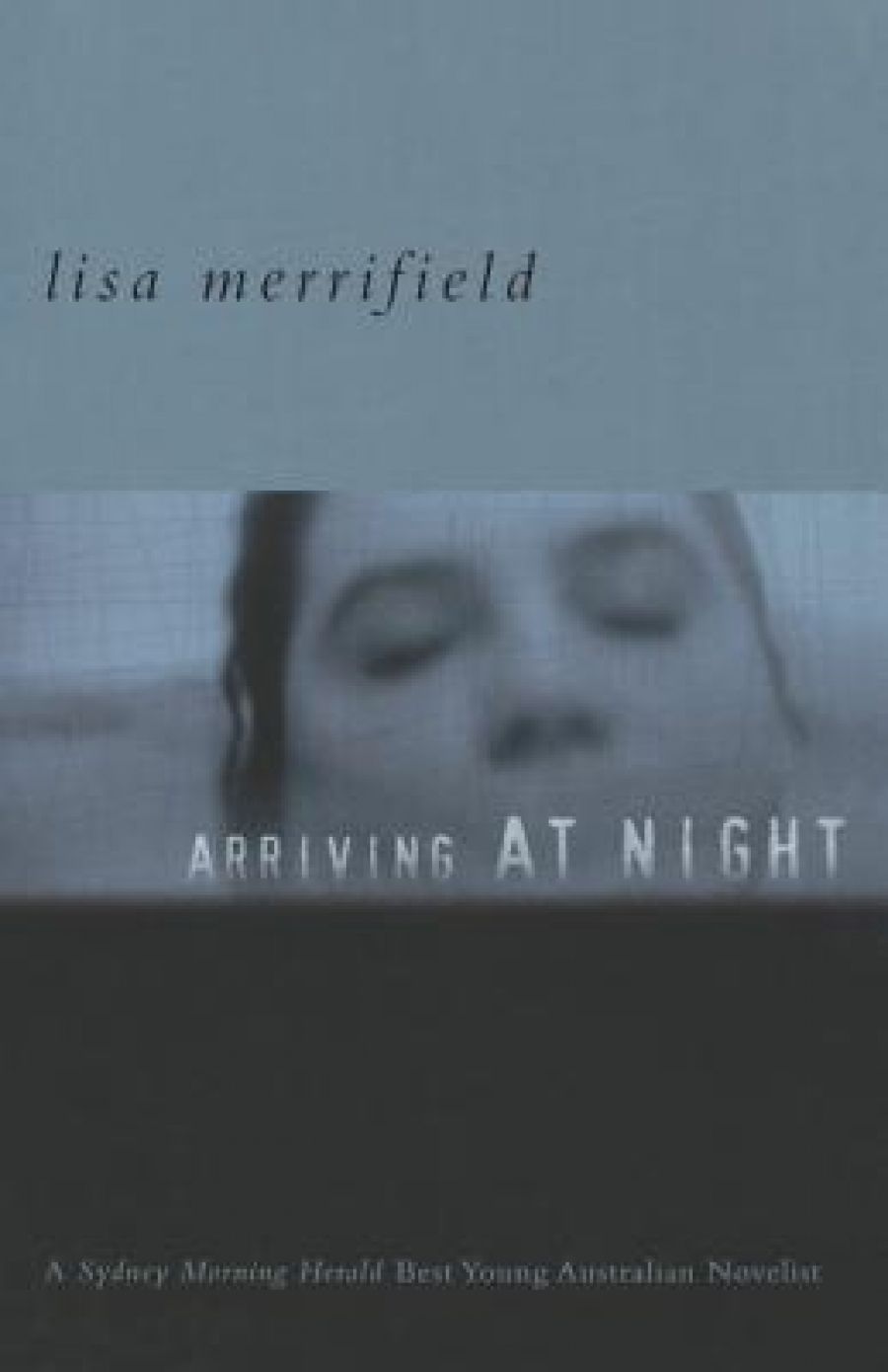
- Free Article: No
- Contents Category: Fiction
- Review Article: Yes
- Article Title: Fiction in Aspic
- Online Only: No
- Custom Highlight Text:
There is about Lisa Merrifield’s second novel a quality of aqueousness, an obsessive returning to states of immersion, whether in water, sleep, waves, a glass of gin. Hers is a superb exploration of the gelatinous margin between mind and world, innocence and experience, madness and sanity – those interregnums in the government of the self. And while it is from the weird clarity of this amniotic silence that Arriving at Night draws its various strengths, it is the same somnolence – the torpor of fiction in aspic – that comprises its singular flaw.
- Book 1 Title: Arriving at Night
- Book 1 Biblio: Flamingo, 347 pp, $19.95 pb
Like Dostoevsky, who casts a long, late-afternoon shadow over the entire narrative, Merrifield wants us to see the conflict between the interior and exterior life as a moral quest of sorts – a drama of conscience and necessity. But where the Russian’s genius arose from a moral intelligence informed by belief (however warped and brutalised) that understood and so made forgiveness possible for even the most appalling transgressions, Merrifield is unable to extricate the reader from the monotony of human evil. Her godless world is too much with her, and with us. Like waking from a nightmare to find oneself still trapped inside the dream, the reader of Arriving at Night emerges from the watery solipsism of its protagonist’s guilt only to discover the wider fictional world of the novel submerged as well.
Although its setting is unique, the story is ever familiar: in the white heat of anger, a young woman commits a terrible crime. For a figure of impeccable mildness, even banality, she is at once thrilled by her new-found potential and frozen by the horror of its implications. The novel proceeds via the logic of her unravelling, anatomising her remorse as it thaws during a weeklong beach holiday on the north coast of New South Wales. She emerges as a kind of hinterland Raskolnikov, her moral equivocation located, like the holiday cottage (‘we don’t have a view. The sea is hidden behind a wall of absolute blackness that is actually a thick belt of scrub and trees’) in a region cut off from the possibility of either redemption or despair. But, as she acknowledges at the novel’s close: ‘The world cannot stay blue, balanced on that twilight, it must topple into darkness or light.’
At the instigation of one of her holiday companions – an older, mysteriously withdrawn, white African named Vincent – the young woman has begun examining the life of Albert Speer, whose writings (along with Gita Sereny’s remarkable biography) she returns to with fervid application in the wake of her crime. She hopes to understand how complicity with a stronger, more charismatic character can lead even supposedly ‘good’ people to perform barbarous acts.
In Speer’s postwar writings, she finds the paradox that now governs her own life: ‘You lose something of yourself, something precious and central when you realise your own wickedness, but without losing it you can’t grow up.’ Speer, in his unquestioning devotion to Hitler (the ‘strong’ character in the Nietzschean sense, living beyond good and evil), achieves evil by default. In her unhappy engagement, her anti-career choices and eerie devotion to a childhood music teacher, she grows aware that preserving her innocence has come at the cost of self-assertion, that – even in avoiding the choice of wickedness – ‘repetitive indecision becomes a decision in the end’.
As the relationship between young woman and fiancé breaks down, her attachment to Vincent blooms. Like an alcoholic who recovers health and sanity only after hitting bottom, it is only a failed attempt at suicide by drowning that finally shunts her from absorption into self-knowledge. Vincent, she learns, is the secret sharer of guilt ‘he couldn’t be reminded of … because he had never forgotten it. It was always there, underneath everything, making his present life unreal’. He, too, has committed terrible crimes as a young soldier, while under the command of a charming psychopath during a decades-past war in Angola. Like her – like Speer – he has acted in thrall to a stronger figure. Yet, unlike them both, he is unable to embrace the fresh certitudes such self-knowledge confers.
In their final conversations, during which the two consummate their relationship in mutual confession – an exchange leaving her reconciled to life, Vincent determined to suicide – we hear echoes of the ‘Grand Inquisitor’ episode from The Brothers Karamazov:
‘So,’ he said, ‘I am godless. We are alone. We are alone in the universe and must answer for ourselves.’
‘Yes,’ I replied, ‘but you’re saying we.’
Where, in Dostoevsky, the giving up of oneself to the spontaneous, irrational love of life offers a promise of resurrection, in the universe of Arriving at Night only suicide retains dignity in the face of evil. The young woman’s survival is, ultimately, a sop to our hankerings for forgiveness. As readers, however, we know we lie outside the divine scope that could provide succour. Merrifield, with both modesty and sense, refuses the role of prophet or mystic, and yet, as a novelist, exploring the question of evil, she inevitably lacks the appurtenances of moral suasion that only these roles can proffer, if such a question is to be answered at all.


Comments powered by CComment